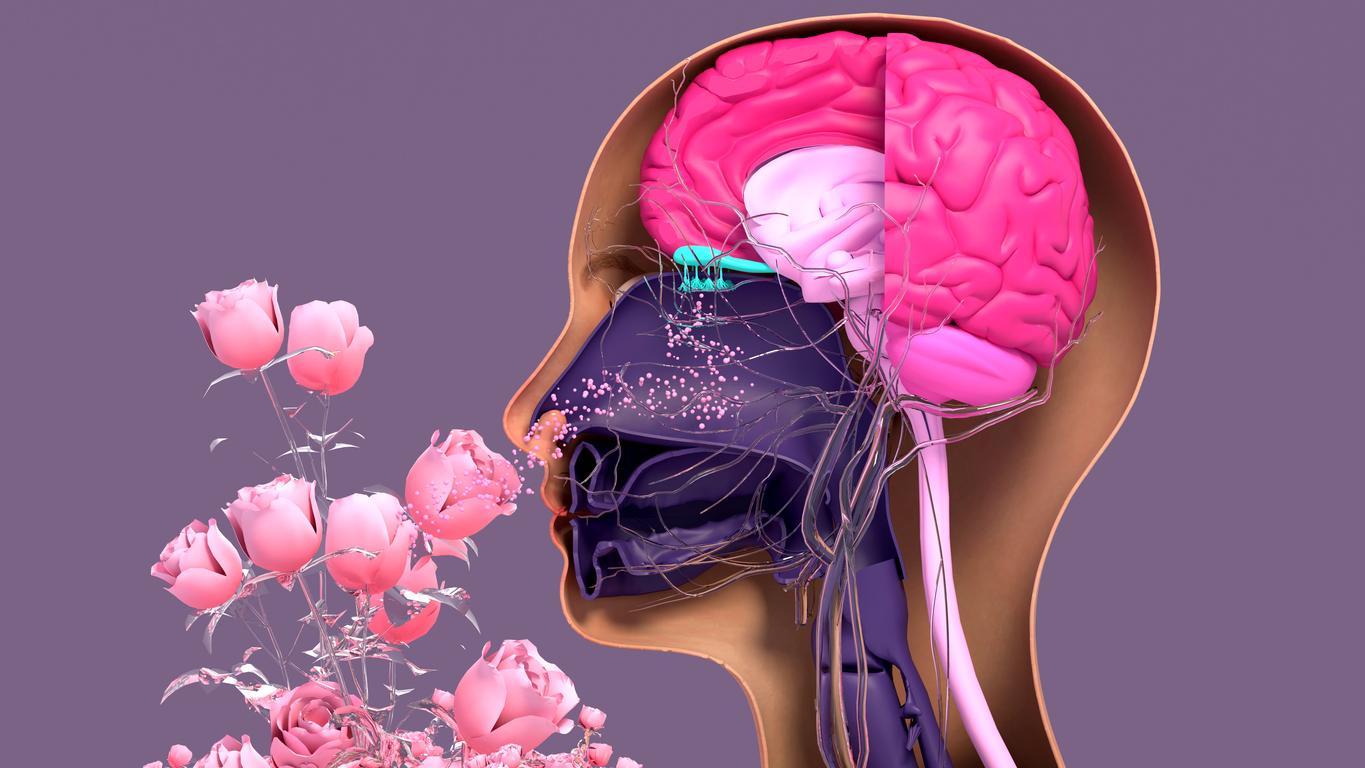A rapid test based on smell, combined with a memory test, was found to reliably predict cognitive decline and dementia, which could aid diagnosis.

- A Columbia University study shows that a quick smell test combined with a short memory exam can predict cognitive decline as effectively as expensive imaging techniques.
- This simple, non-invasive and affordable method could be used in general practice to identify people at risk of dementia, thus facilitating early diagnosis and rapid interventions.
- The researchers point out that these tests could also encourage broader participation in clinical trials on the prevention of Alzheimer’s disease.
This is a small revolution in terms of early detection. A new study from Columbia University, US, finds that a quick smell test, combined with a brief memory test, can predict cognitive decline as accurately as expensive imaging techniques. This simpler approach could facilitate the assessment of risks linked to Alzheimer’s disease and other forms of dementia.
Predicting cognitive decline as effectively as imagery
Led by Dr. Davangere P. Devanand, professor of psychiatry and neurology, the study demonstrates the effectiveness of this simple method for assessing cognitive decline in older adults. To do this, scientists analyzed data from 647 participants in Mayo Clinic aging research, followed over an eight-year period, of whom 102 developed cognitive decline and 34 progressed to dementia.
They found that the test combining odor identification (Brief Smell Identification Test or BSIT) and memorization (Blessed Information Memory Concentration Test or BIMCT) predicted cognitive decline as effectively as amyloid imaging, an often used but expensive method, which consists of examining the density of amyloid plaques in the brain, a characteristic of certain neurodegenerative diseases such as Alzheimer’s.
The results, published in the journal Alzheimer’s & Dementiashow that this combination of tests could revolutionize the early detection of cognitive disorders in general practitioners’ offices, where complex diagnostic methods are not always available.

Accessible, non-invasive Alzheimer’s screening
“One of the most exciting aspects of this study is its practical application in the real world”note the researchers in a press release. These tests, non-invasive and easy to administer, could be integrated into routine consultations, so as to quickly identify people at risk and refer them to specialists, while avoiding the high costs linked to complex brain imaging. This could lead to faster interventions and increased participation in clinical trials on the prevention of neurodegenerative diseases, which affect tens of millions of people around the world.

















